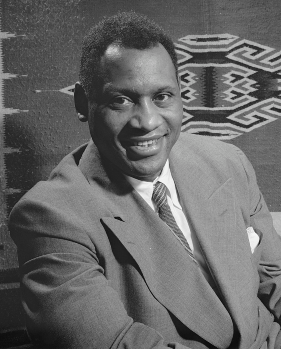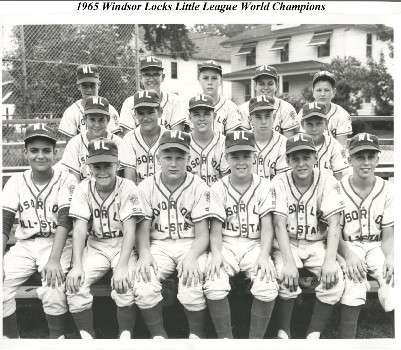By Philip R. Devlin
(January 24, 2024) — The son of a slave, Paul Robeson died on January 23, 1976 at age 77. Robeson’s early life is an inspiring story of courage, perseverance, and remarkable academic and athletic achievement. After graduating from Somerville High School in New Jersey, Robeson attended Rutgers University on an academic scholarship. While at Rutgers, Robeson won 18 athletic letters in football, basketball, baseball and track and field. An enormous, powerful man for his time, Robeson stood over 6 feet 3 inches and weighed about 220 pounds. So dominant a presence on the football field as an end and a tackle was Robeson that Walter Camp, a Connecticut native himself and the “father of football,” called him “the greatest ever to trot the gridiron.”

Robeson was named a first team collegiate All-American in football both in 1917 and in 1918 and, later became an early professional football star. Being the only Black student at Rutgers at the time, Robeson had to overcome abusive words and acts directed at him, not the least of which was getting beaten and having his fingernails pulled out by his teammates there. Proud and undaunted, Robeson strove to prove his worth and graduated class valedictorian from Rutgers in 1919. Using an appropriate athletic metaphor in his valedictory address, Paul Robeson urged his classmates “to catch a new vision.”
Robeson later obtained a law degree from Columbia University, but after a brief stint as a lawyer, he turned to the arts and as both a singer and an actor achieved stunning success. Blessed with an outstanding baritone voice and fluent in 12 languages, Robeson gave concerts worldwide and recorded many folk and spiritual songs. His signature song is “Old Man River.” He also enjoyed significant success in the theater, most notably playing the role of Othello on numerous occasions. Robeson also played in Eugene O’Neill’s “Emperor Jones” at the Ivoryton Playhouse in Ivoryton, Connecticut in 1932.
At the height of his singing and acting career, Paul Robeson bought a large, pillared home in Enfield, Connecticut in 1941 called “The Beeches.” He and his family lived in Enfield at 1221 Enfield Street from 1941 until 1953 at 1221 Enfield Street.
In a 1998 New York Times article written to commemorate the centennial of Paul Robeson’s birth, his son, Paul Robeson, Jr., had this to say about life in Enfield:
“My father’s artistic base was in New York. Enfield was his retreat. I experienced no racism there. I have very warm memories of going to Enfield High. I remember the first school dance I went to; one of the most popular girls in the school walked all across the floor to ask me to dance, to break the ice.”
The Robesons sold their Enfield home in 1953, largely as a consequence of Paul Robeson losing his passport in 1950 for his sympathetic attitude toward Communist Russia. At the time, the bulk of Robeson’s income—over six figures annually—had come from foreign concerts. The passport restriction—which lasted for about eight years– reduced his income by over 90 percent, forcing him to sell the Connecticut home.
Paul Robeson’s often outspoken sympathy toward Stalinist Russia has caused lasting controversy about his life. Mindful of his own father’s past as a slave and suffering himself from blatant racist attacks as a young man, Robeson followed his own valedictory advice and “caught a new vision” of a world that seemed to him to elevate the value of the common man and to promote equality among races. That vision centered around the ideology of Stalinist Russia; however, Stalin turned out to be as much of a tyrant and killer as Hitler. Robeson seemed blind to the reality of Stalinist Russia for most of his life and paid a price for it. His Communist sympathies caused him to lose some of the honors bestowed to him earlier in his life, his place in the NCAA Hall of Fame being the most notable loss; nevertheless, his place in the collegiate hall of fame was restored in 1995.
In 2004, The U.S. Postal Service honored Robeson with a commemorative stamp as part of its “Black Heritage Series” begun in 1978. It was the 27th stamp in that series and was not issued without controversy (see link below). His connection to Russia and to communism may remain controversial and subject to interpretation, but the extraordinary academic, athletic, and artistic achievements of this former Connecticut resident remain beyond reproach.








